
“Cézanne started with all the tricks and then he broke the whole thing down and built the real thing. It was hell to do.”
— Ernest Hemingway
American novelist and Café Society veteran, Ernest Hemmingway, only crossed paths with Elsa Schiaparelli in Paris for a year in the late 1920s. But almost a century later, incumbent creative director, Daniel Roseberry, resonated with this unsung passage from the author’s musings on the French impressionist painter (featured in his short story “Big Two-Hearted River”) so much that he selected it as the thesis statement for his Fall/Winter 2024 Haute Couture collection.
Perhaps, in part, it’s because Rosberry himself has been through hell. Figuratively, of course, as he wove a thread through the nine circles posited by Italian poet Dante Alighieri in his epic Divine Comedy for the Maison’s Spring/Summer 2023 Haute Couture collection—a presentation that saw him grapple with his own version of Inferno with unwonted criticism from animal activism groups and an inaccurate label for peddling gimmicks.
With “The Phoenix ”, Roseberry is firmly centred on the concept of rebirth; the gesture of scorching the trail you blazed to rebuild yourself from the ashes. “Schiaparelli was a phoenix, a magical creature whose power lay in her ceaseless ability to reinvent—not only herself, but fashion, too,” Roseberry writes in his show notes of his predecessor. Over 31 resolute looks debuted in the basement of the Hôtel Salomon de Rothschild, Roseberry takes a flame to the act of coup de théâtre prevalent in today’s shows and aligns himself to the grandiose and quiet reverence of yore.
This process was clear from the moment his celebrity clientele—Kylie Jenner, Doja Cat and Selma Blair—arrived on the front row. Each proficient in reshaping their image, these women were a signal of the menagerie Rosberry elicited in his performance of renewal. The collection opened with the orchestral repose of Bruno Alexiu’s “A Bucolic Scene”. To the swells of strings, Schiaparelli’s first model emerged in a black velvet cap swaddled by gilded feathers.
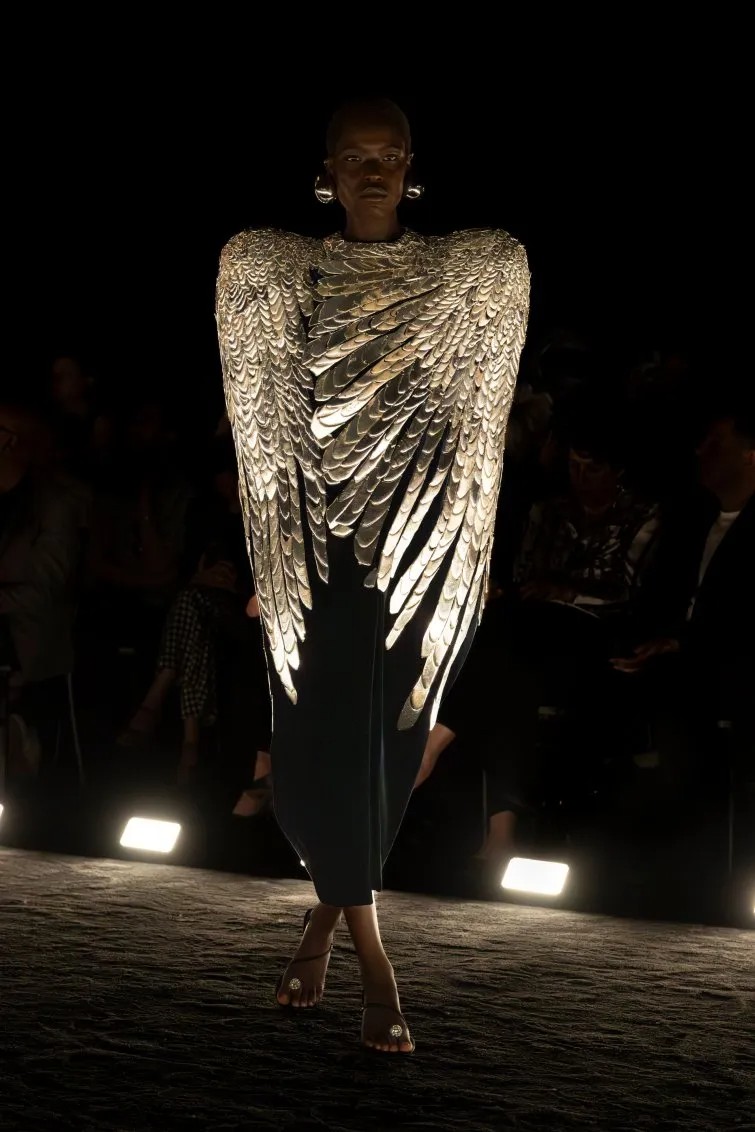
The Phoenix-wing shoulders adorned with a 3D chrome trompe l’oeil plume embroidery was a homage to Russian prima ballerina Anna Pavlova, whose performance of “The Dying Swan”’ served as inspiration for Schiaparelli in the early 1930s, too. Yes, this avian motif set the scene, but the stagnation and intentional fluidity of the model’s movement across the hall bore more resemblance to Icarus preparing to take flight from his crest, especially given Roseberry’s interest in mythology and meditations on rebirth.
In this way, concepts from Schiaparelli’s archives underwent a renaissance as well, as Roseberry breathed new life and ideas into them for the contemporary age. Such was the case for a black velvet short-sleeved top embroidered with silver metal and sequins inspired by the design of the iconic Schiaparelli “Apollo of Versailles” cape from the 1938 Zodiac collection. Or, the dress in pink silk satin duchesse dress made of layers of hand-cut ribbons and enhanced with protruding vintage heels inspired by Schiaparelli and Salvador Dalí’s surrealist shoe hat from 1937.
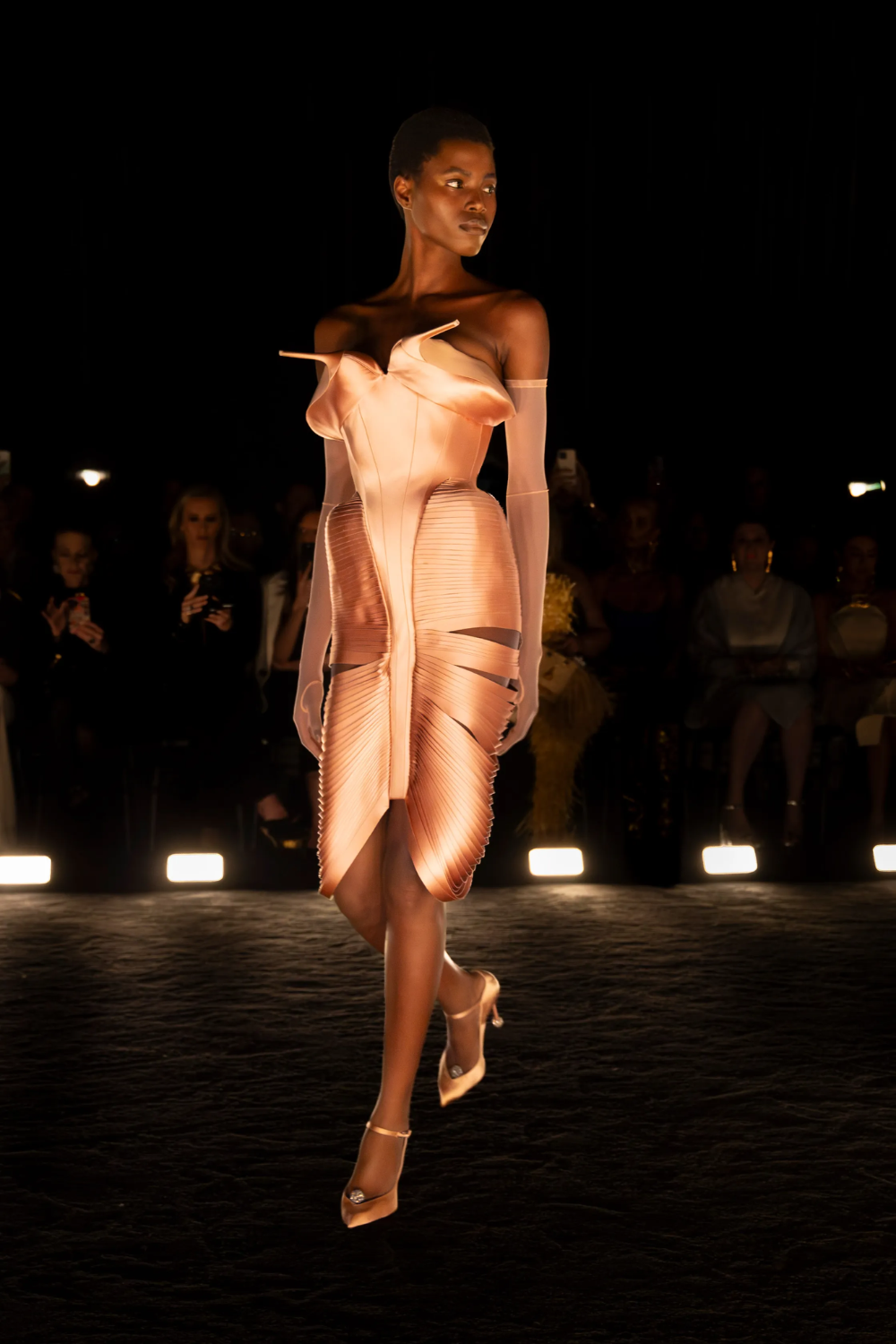
Even simple silhouettes, be it the cocoon dress designed in 1951 or Karlie Kloss’ silk organza feathered jacket, matching ushanka hat and 1940s paper bag cropped trousers, were reimagined with such care as the voluminous tulle skirts and permanent kick-flip shapes that closed the collection.
With black cocktail dresses exposing an underside of tights embellished with rusted pink sequins and an absinth satin skirt wrapped like a bow flowing into a sheer black mesh and lace bustier, it’s apparent “The Phoenix” isn’t just about reinvention, but the act of women revealing new facets of themselves in the everyday.
“It’s an expression of my vision for the Maison today, one free from marketing and merchandising,” Roseberry writes. “But it’s also something else: a way for me to honour that relationship, one of the most intimate ones in the world—the one in which I give women the power to be reborn, again and again and again.”
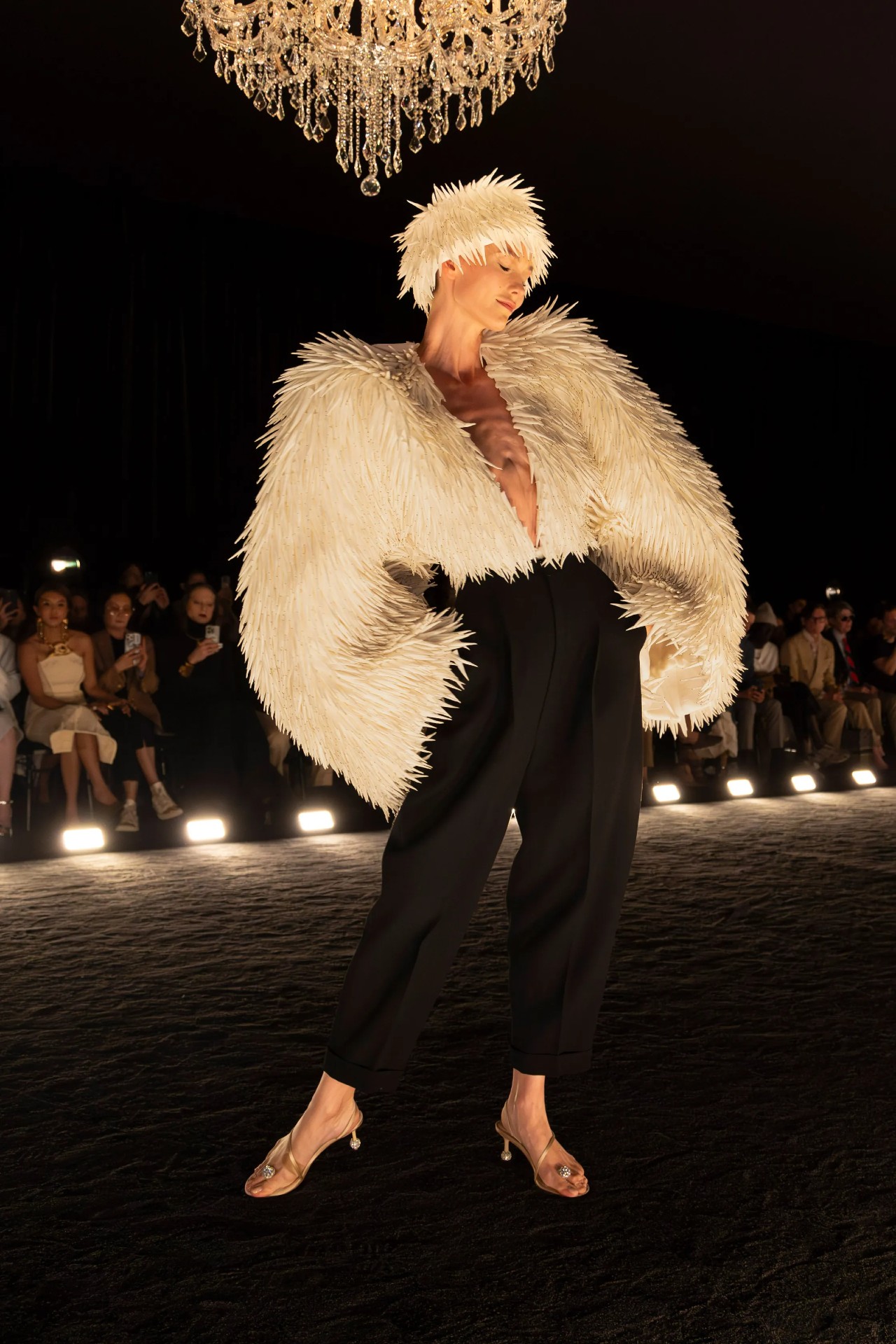
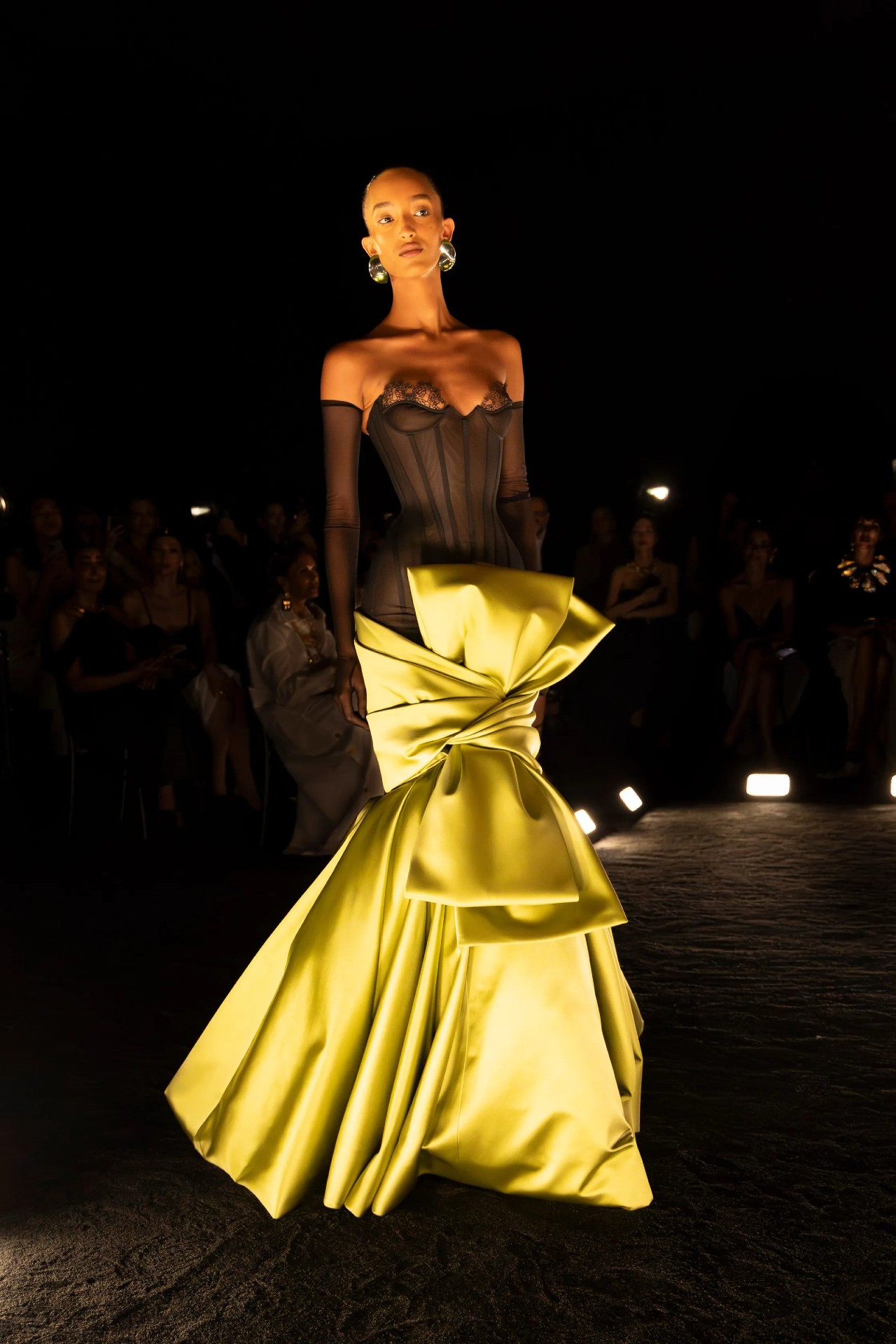
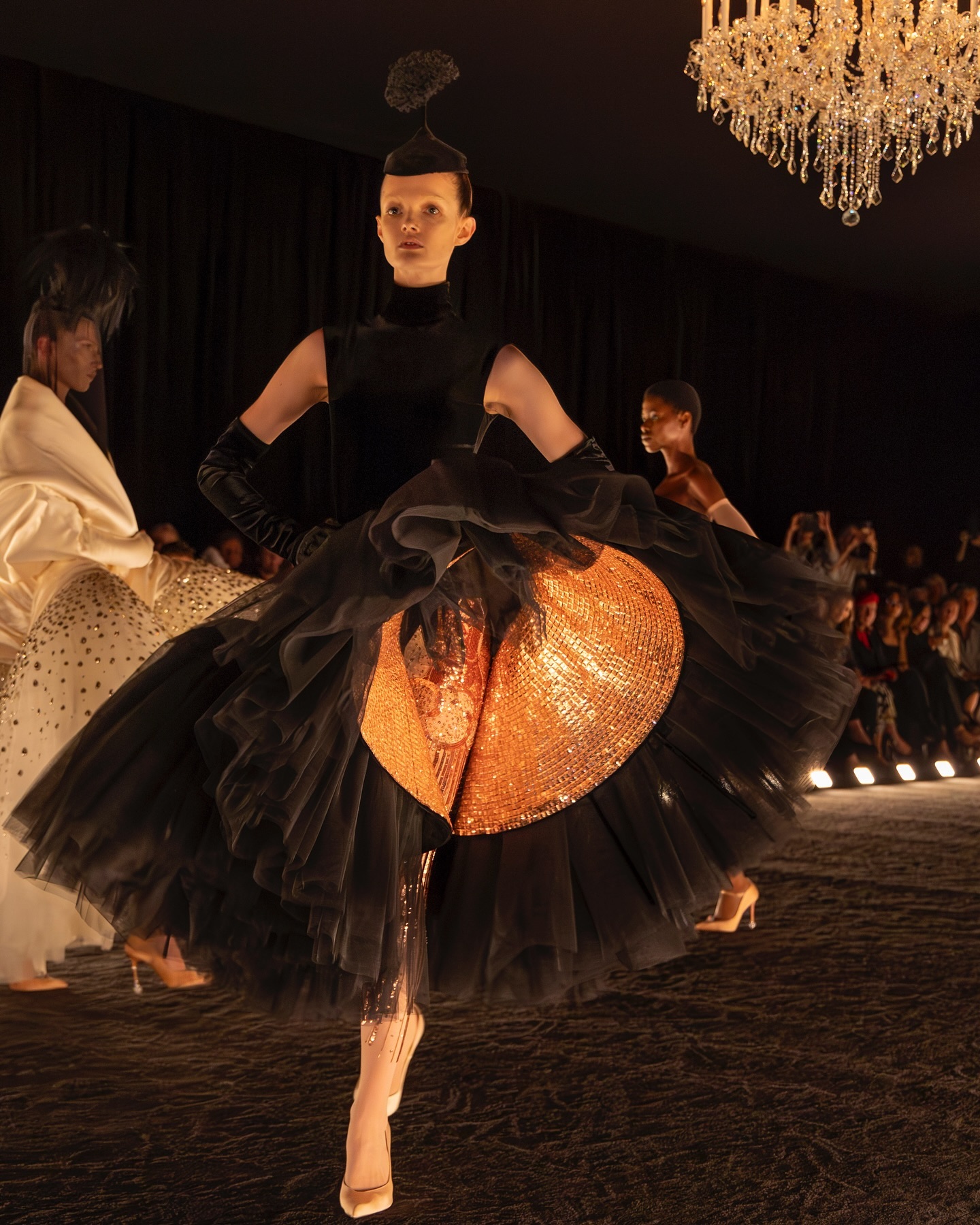
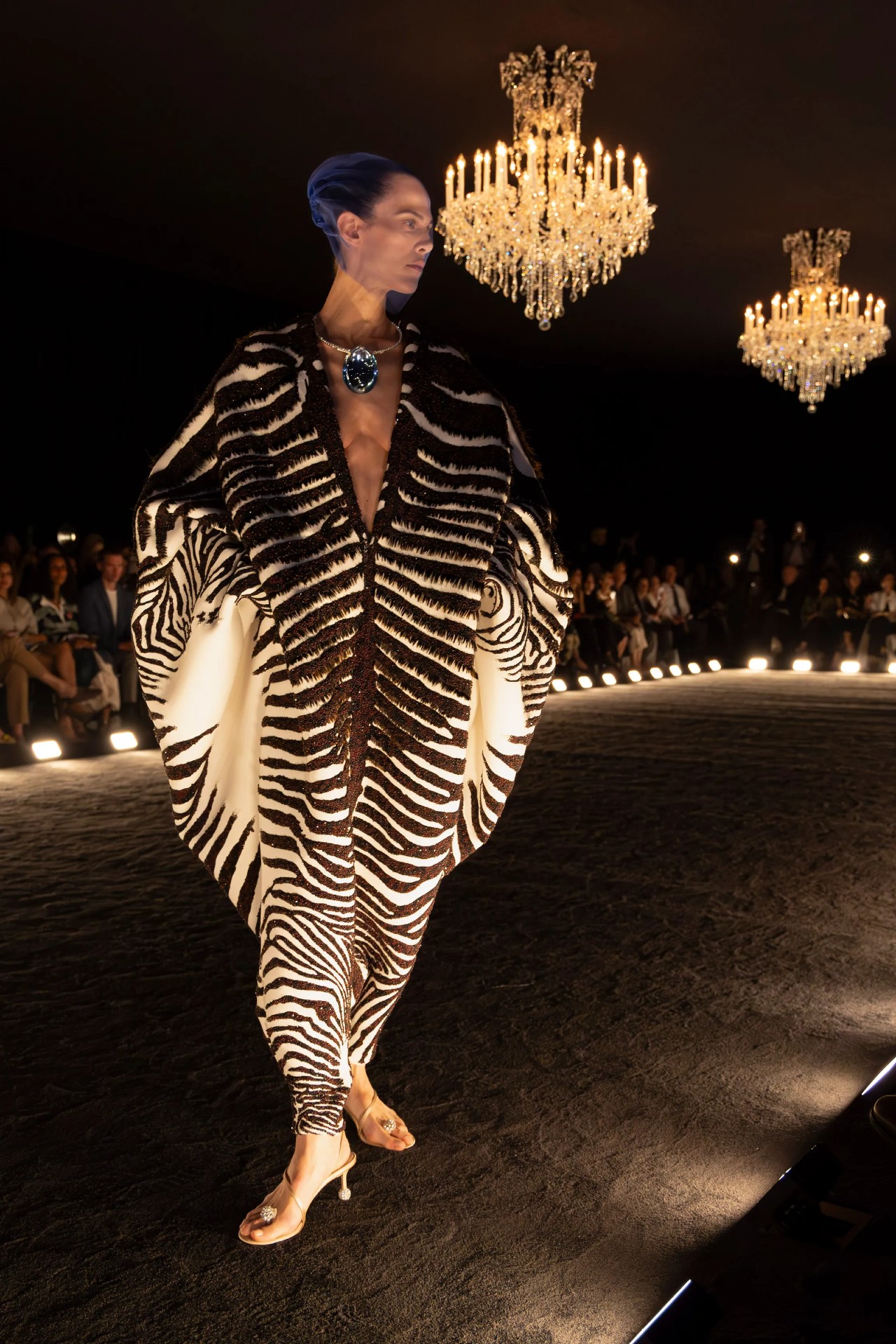
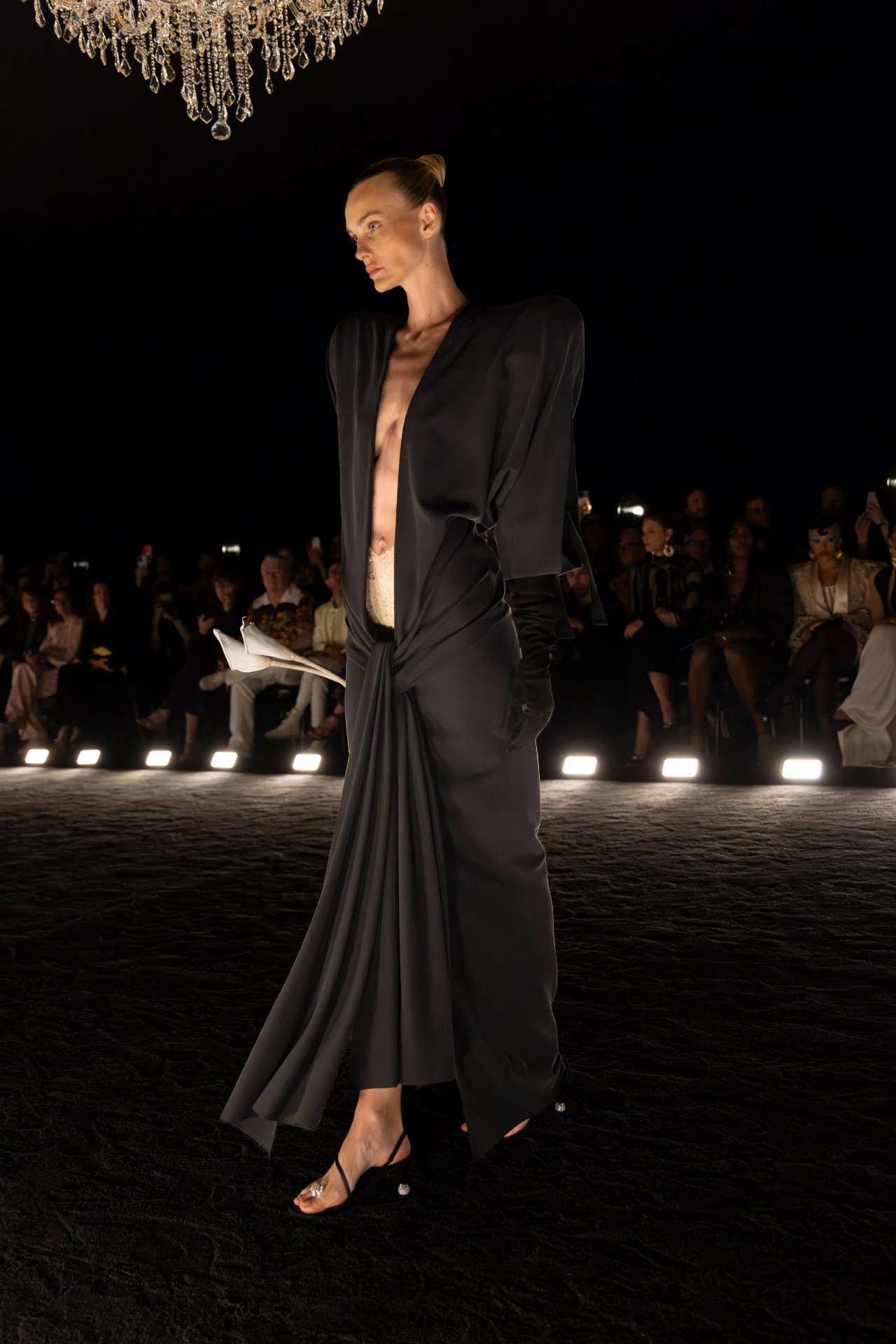
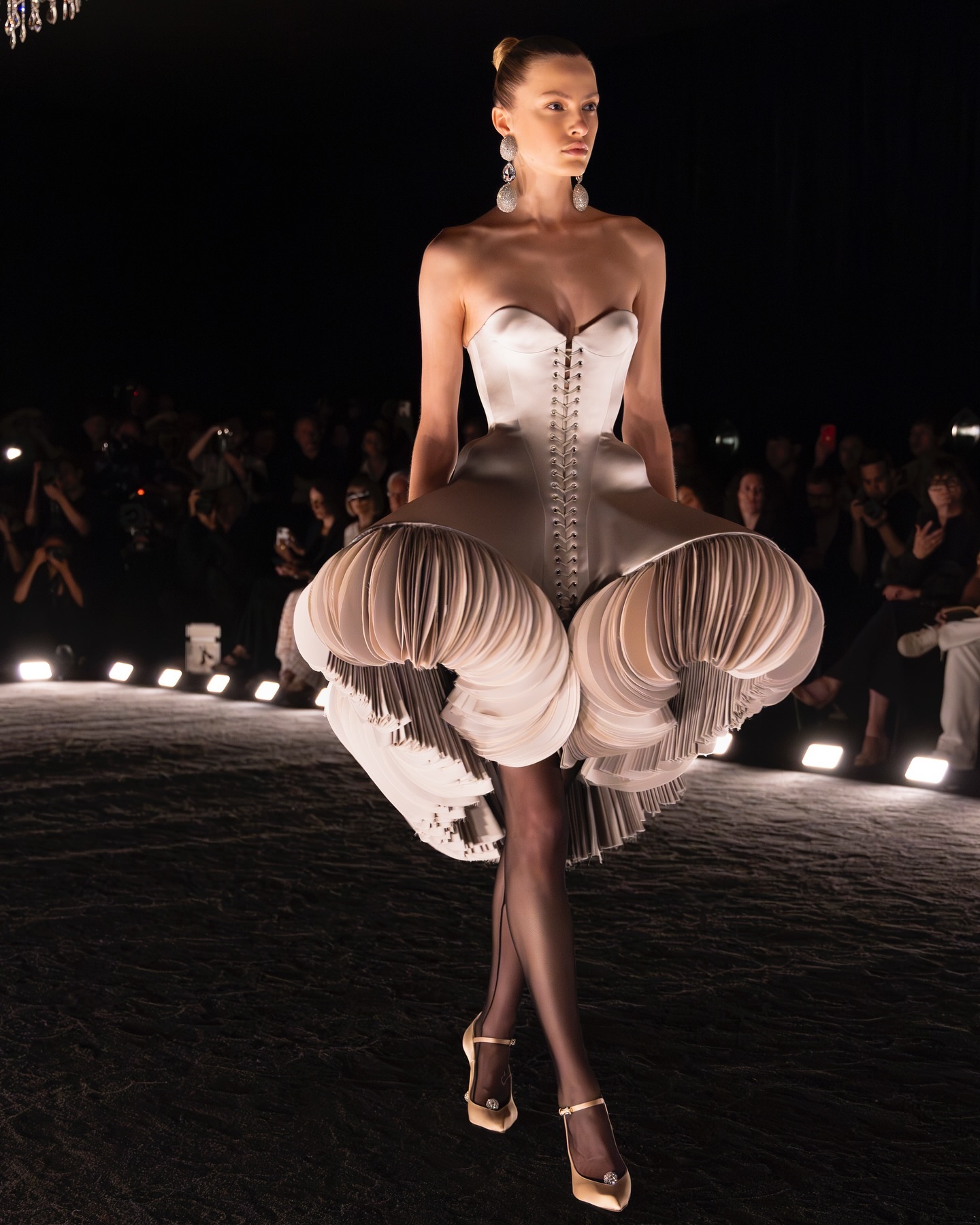
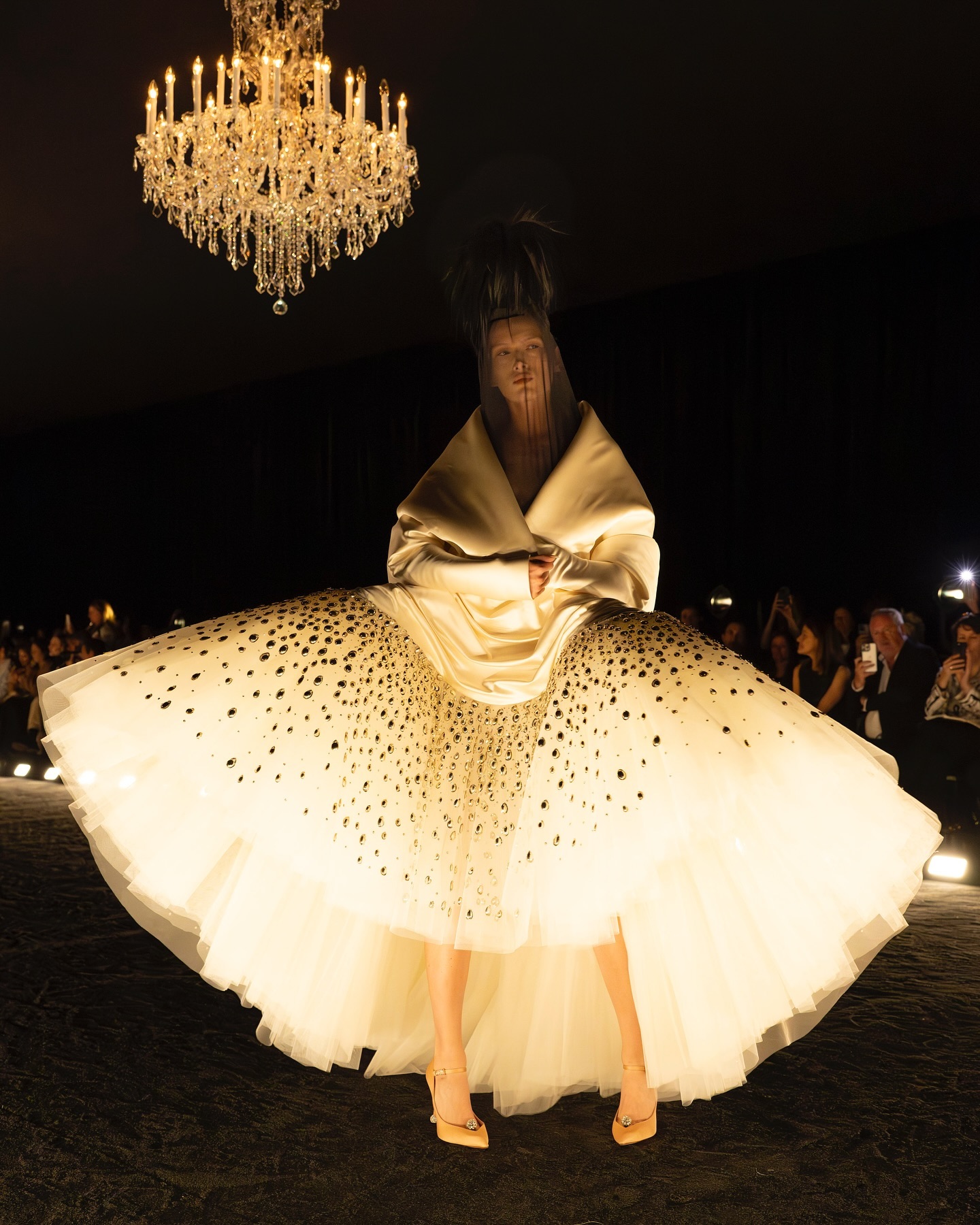
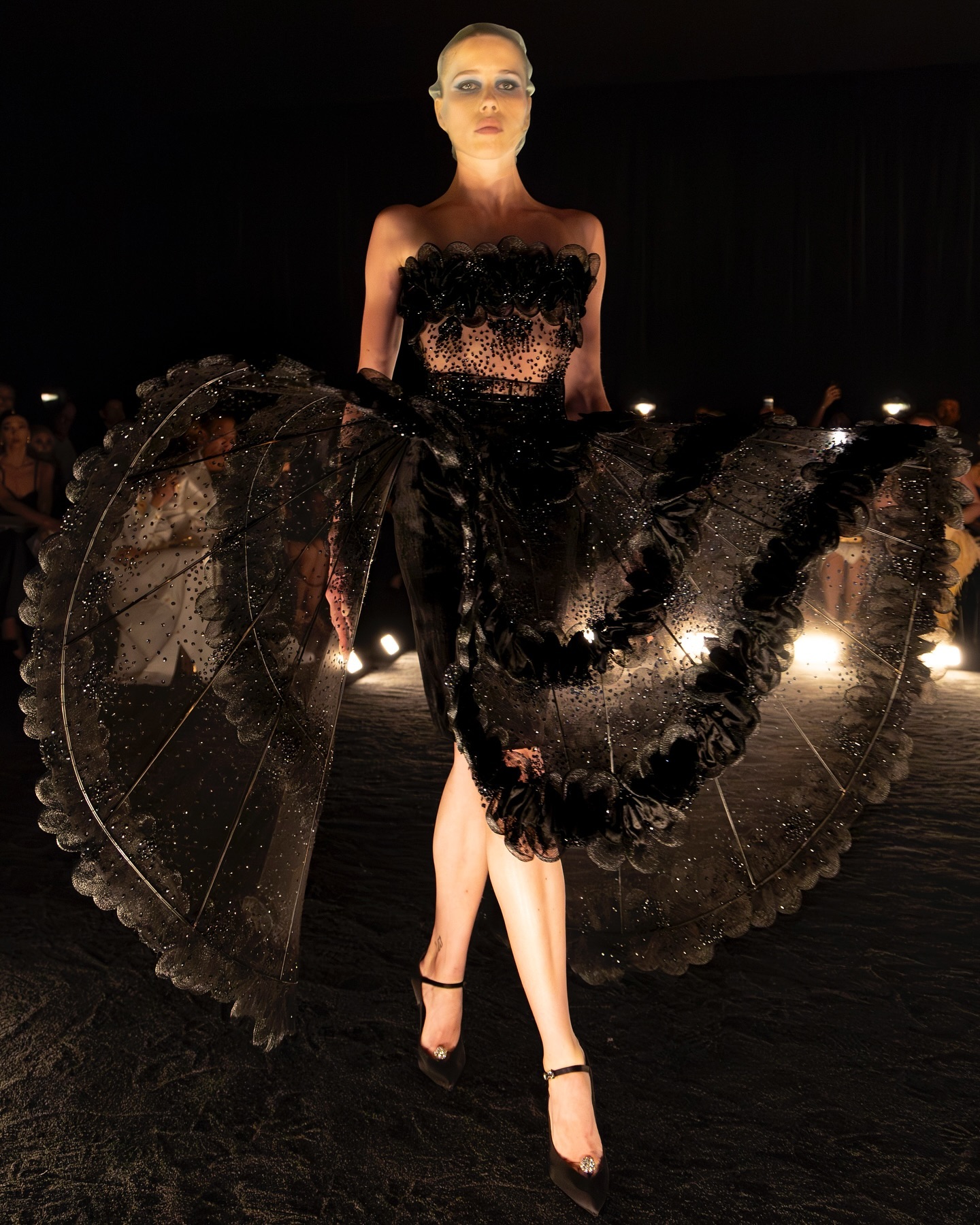
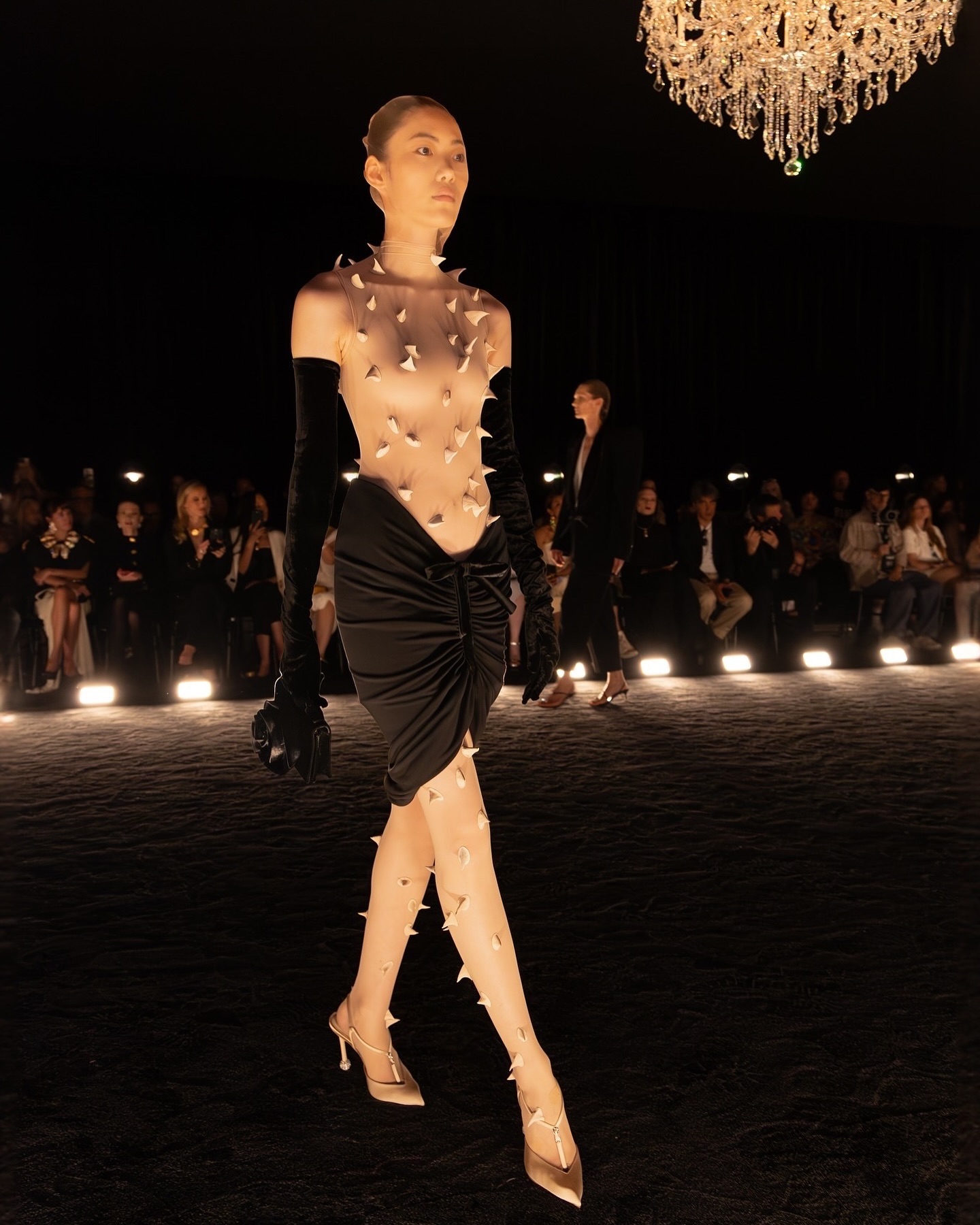
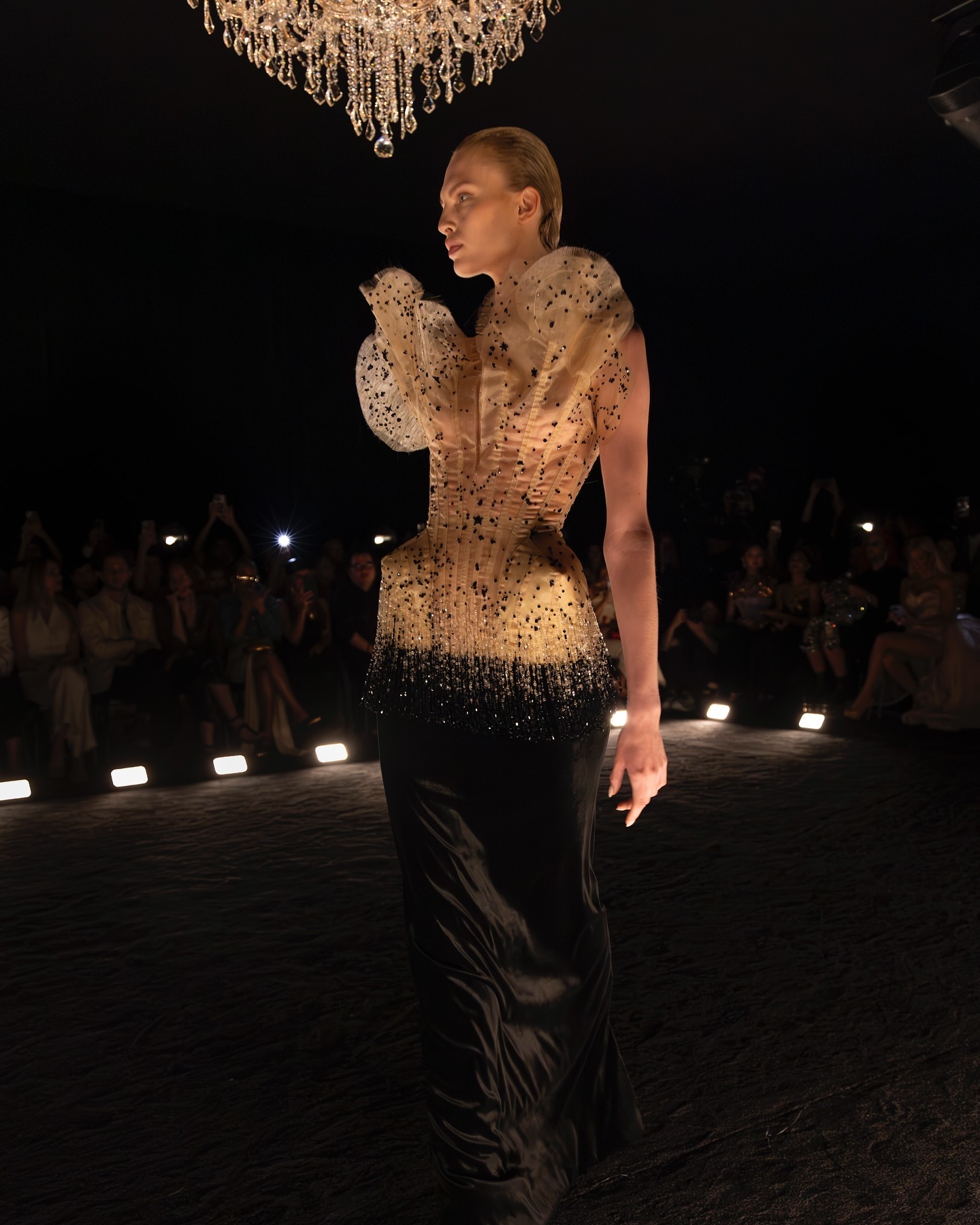
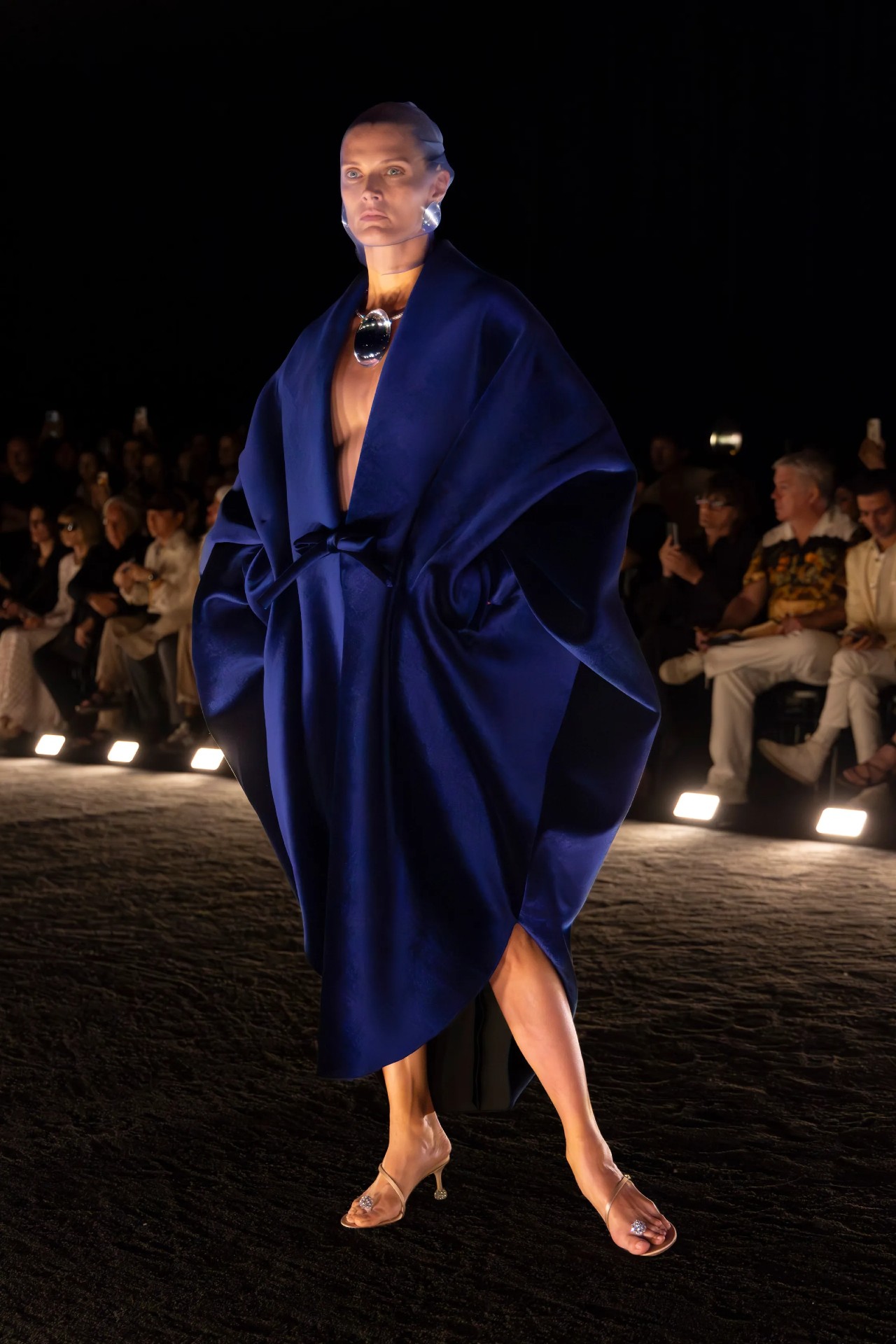
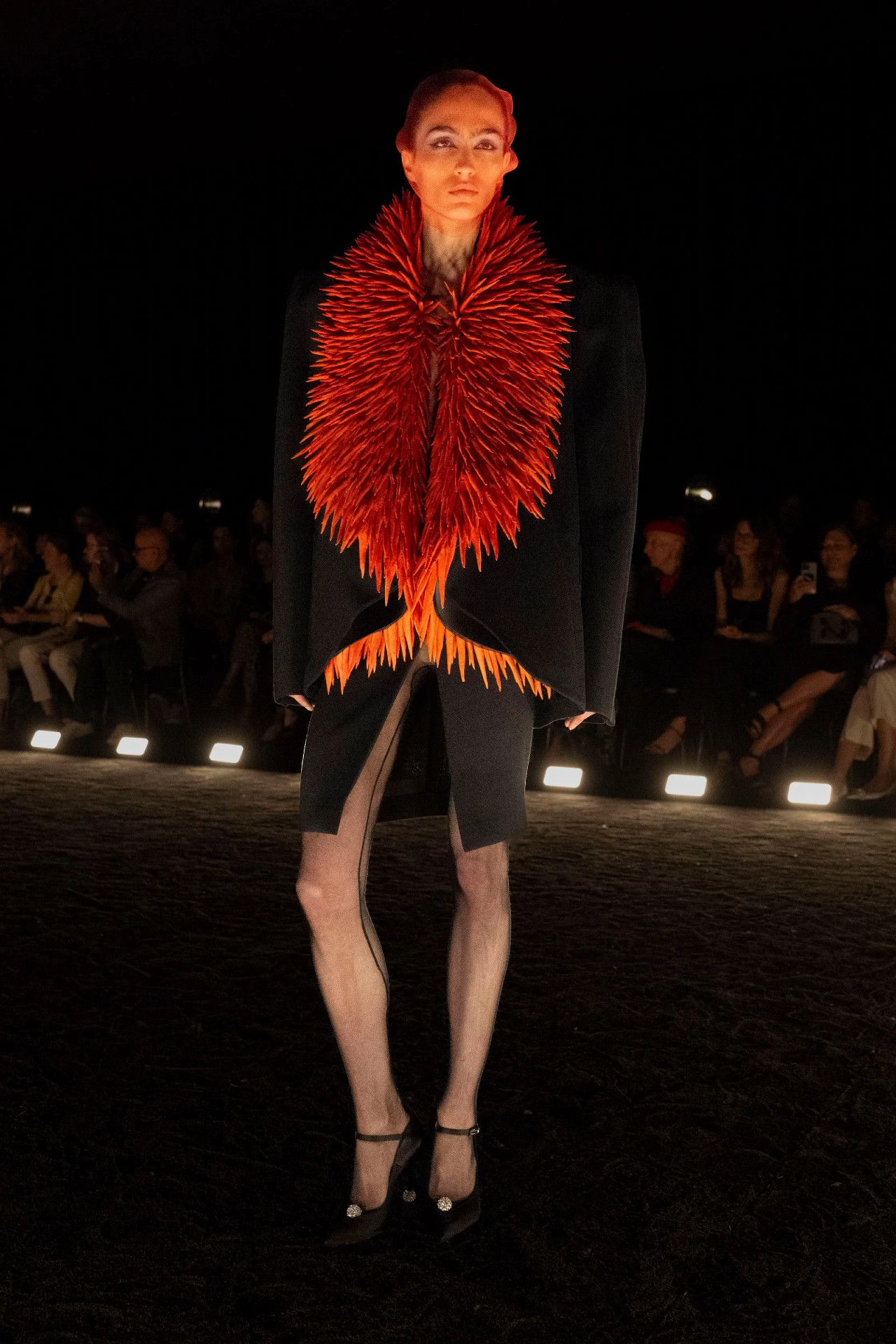
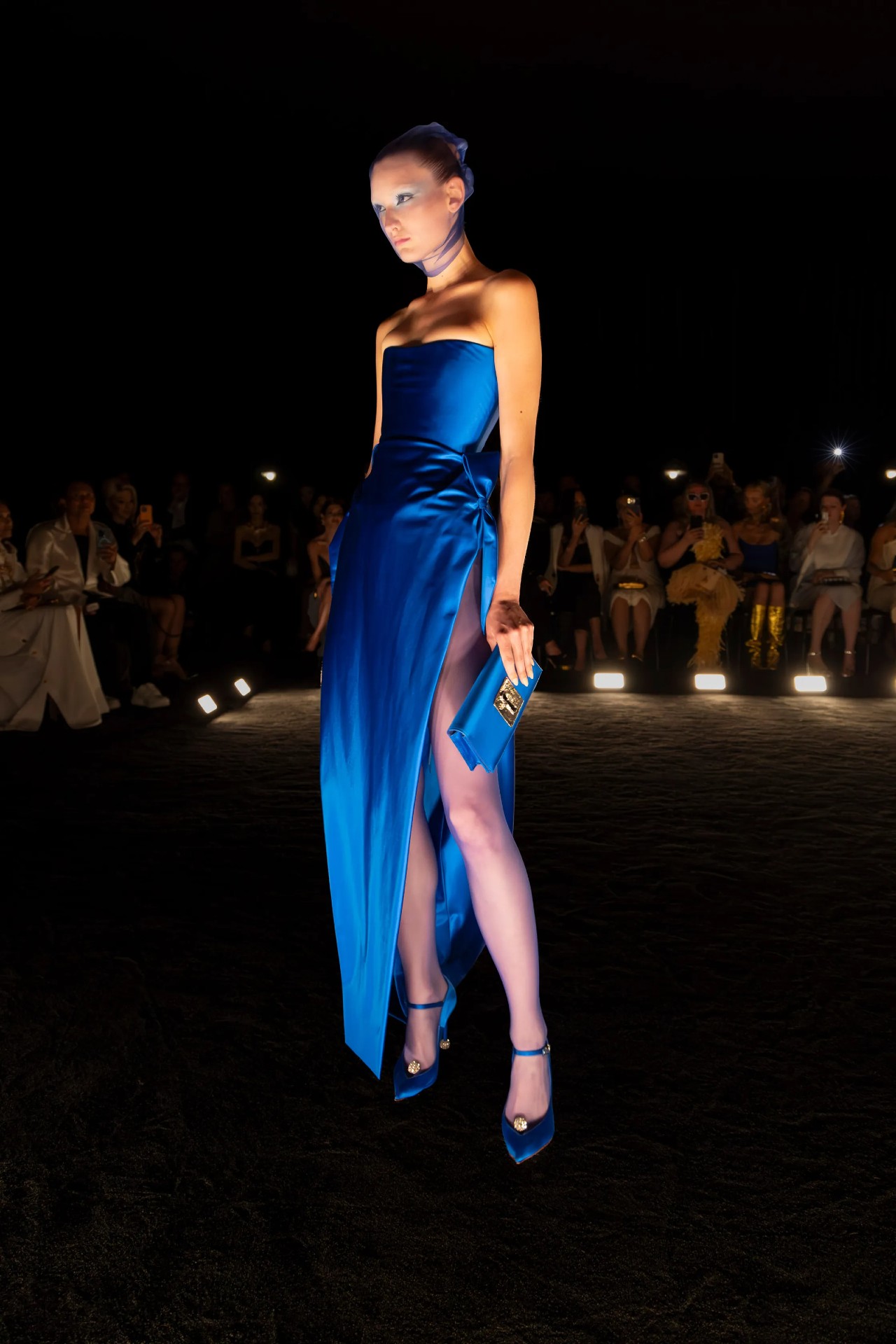
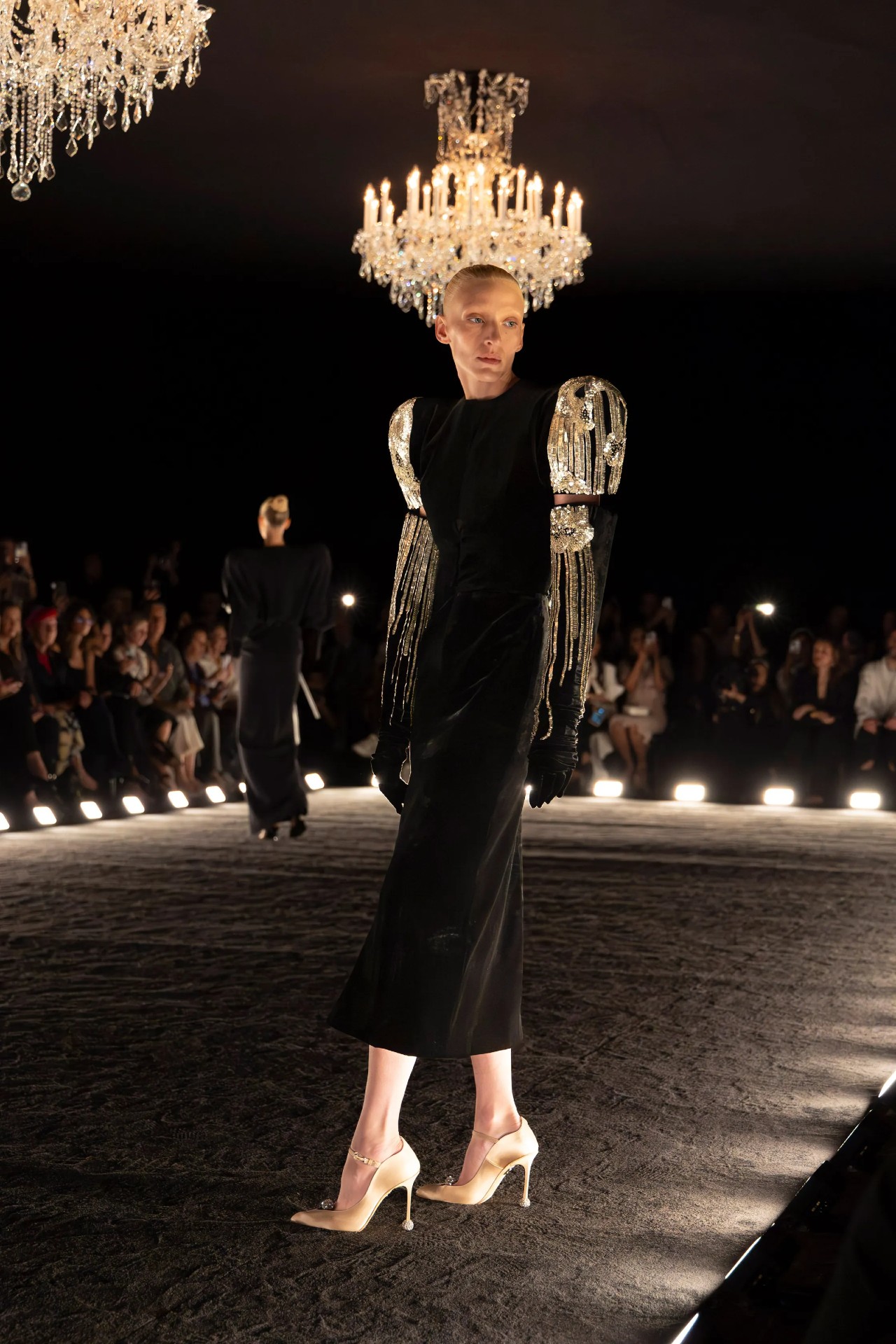
This story first appeared on GRAZIA International.
